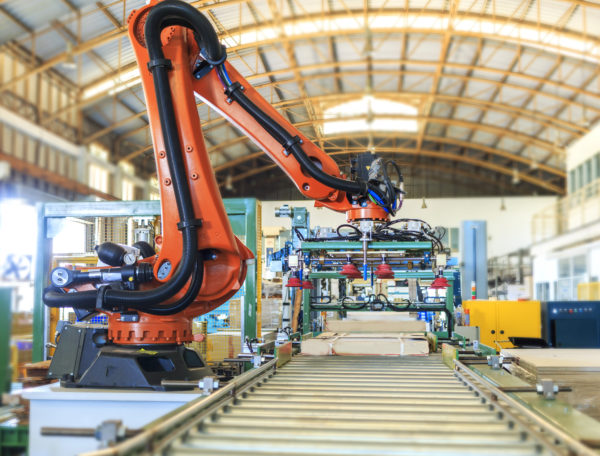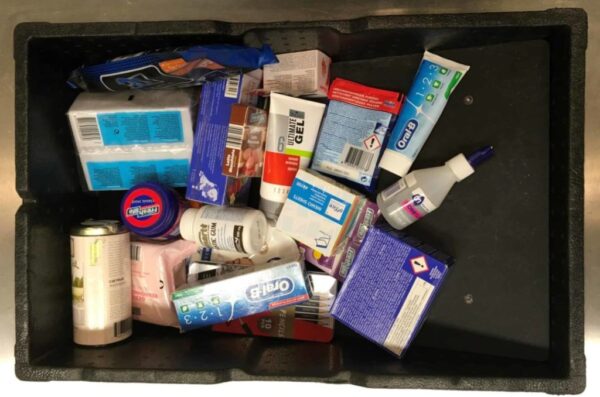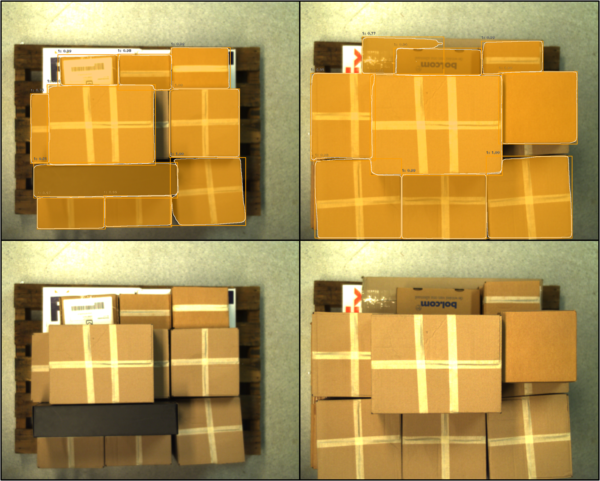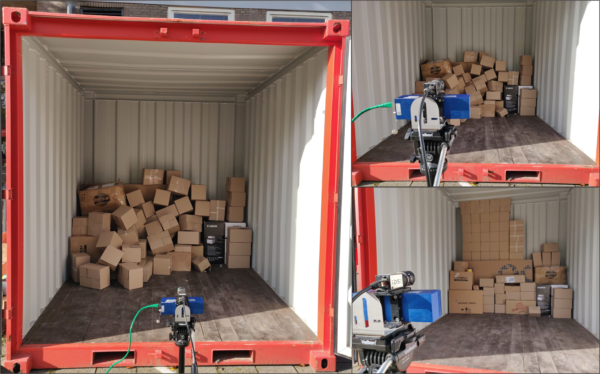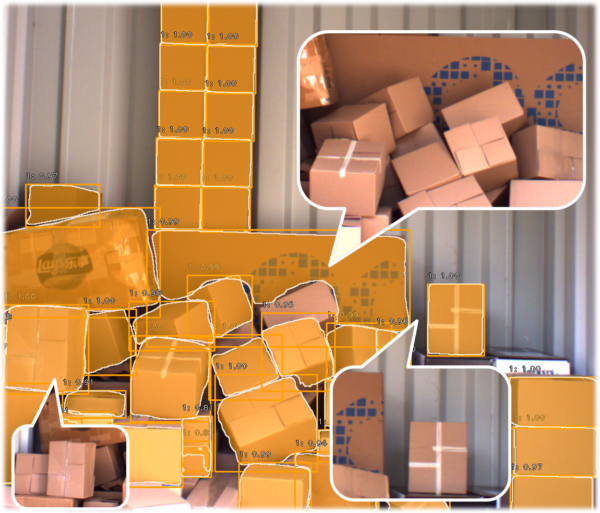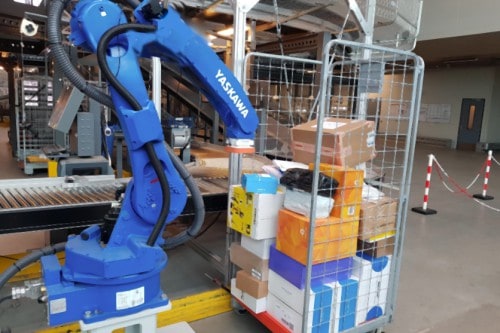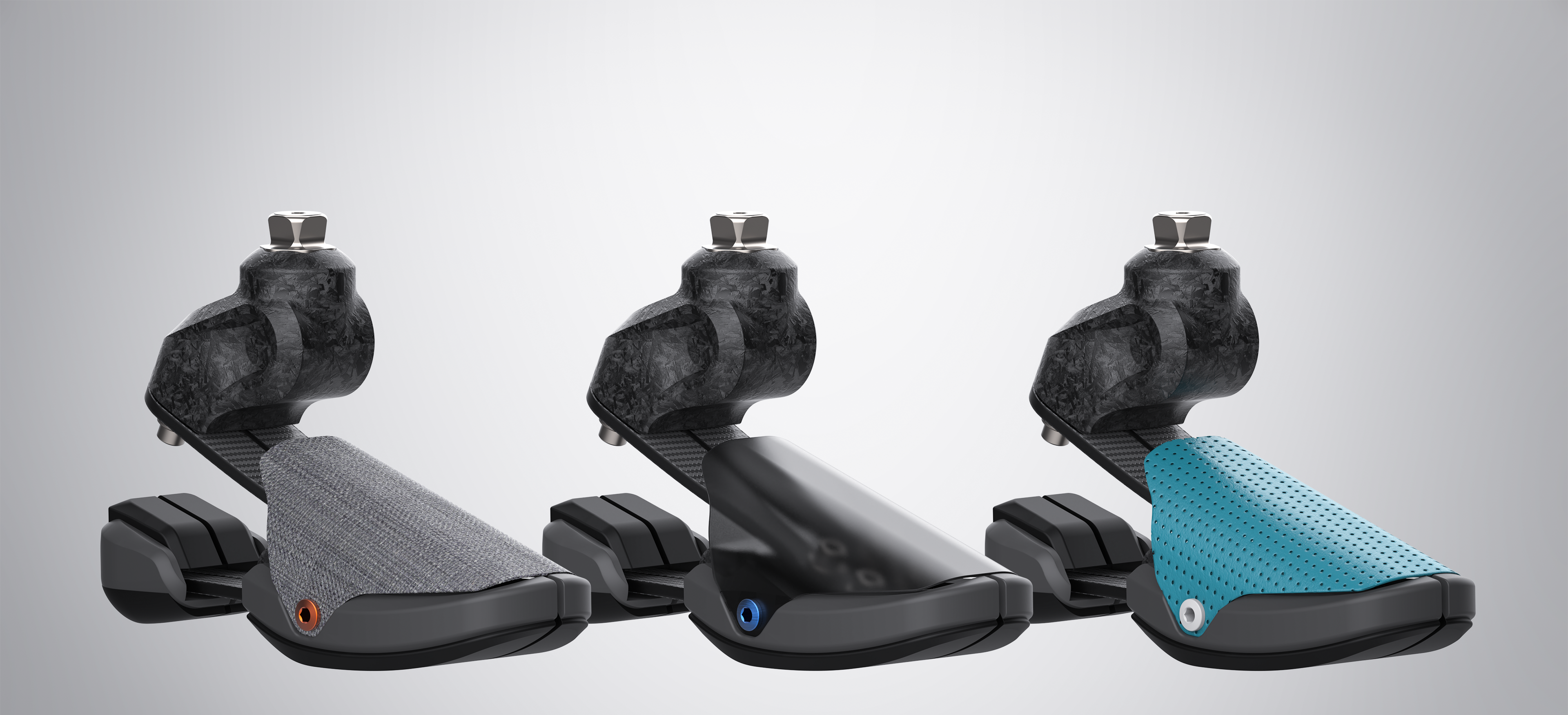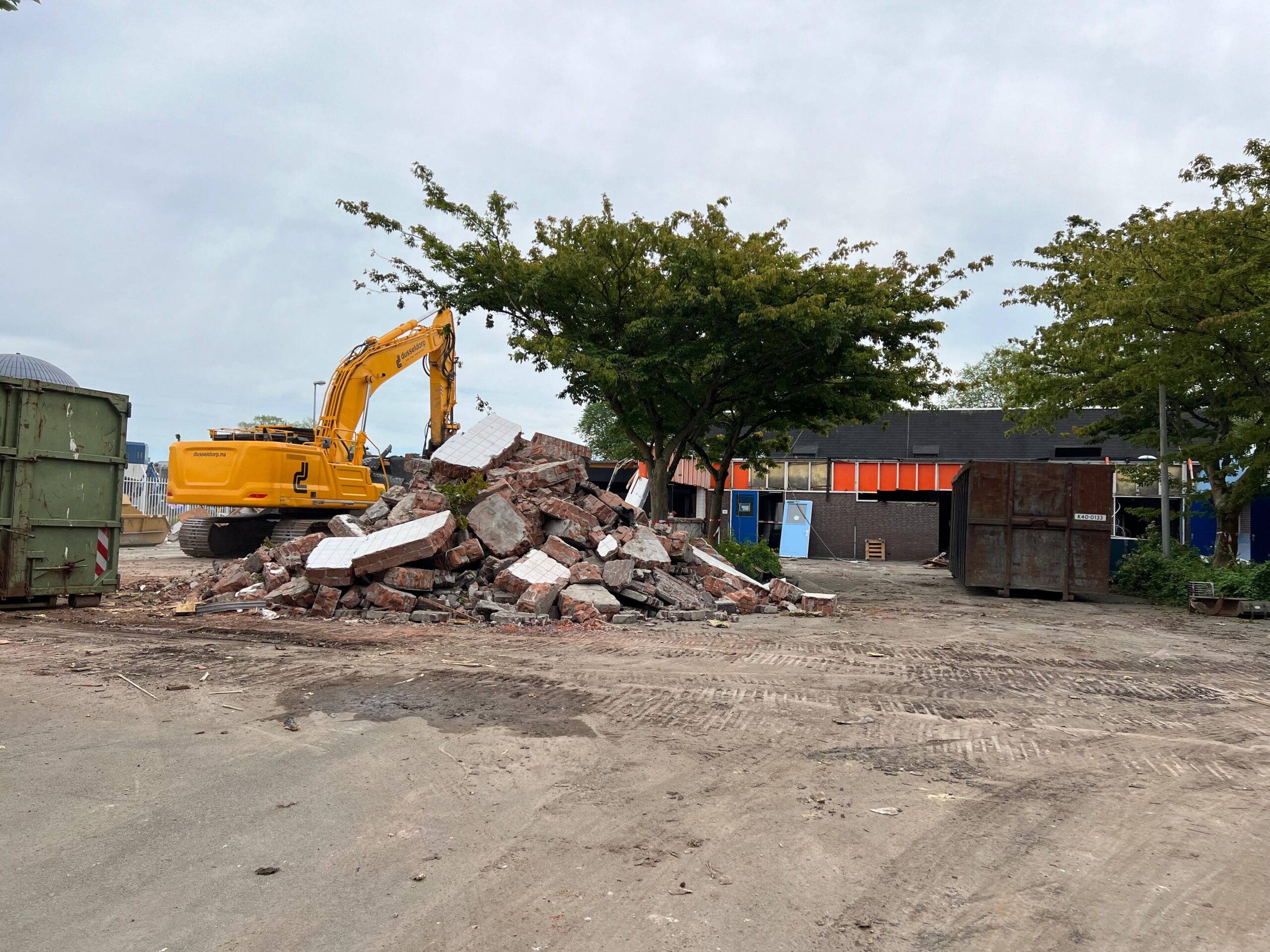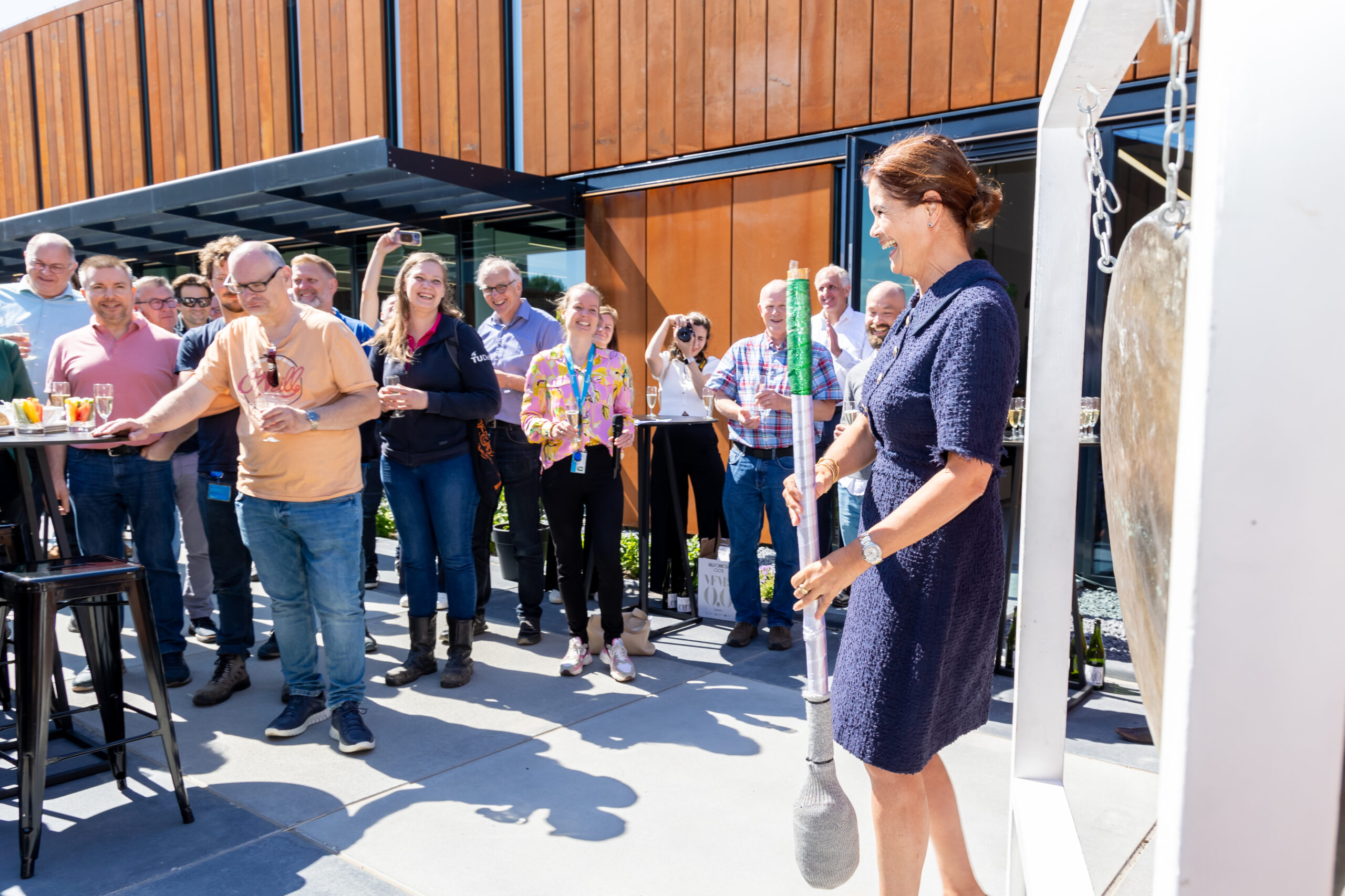It has become much easier to buy products remotely over the past few years. The growing popularity of webshops has also led to a huge increase in the volume of parcel post. Many of these parcels go through several people’s hands before being placed on the sorters. It is becoming increasingly difficult to find and retain staff, and parcel handlers are keen to automate the system. Fizyr has come up with an innovative solution for robotising parcel processing. A conversation with director Herbert ten Have about vision software, training neural networks and using robots in the logistics sector.
A robot equipped with a stereo camera scans a pile of boxes and bags. The image is processed by software and converted into pick-up instructions for the robot. The robot must not, for example, be able to pick up two parcels at once and place them on the sorter, as one of the two would then be dispatched to the wrong destination, explains ten Have. ‘White on white, black on black and transparent or reflective plastic are particularly tricky obstacles, which our software is able to overcome. Before a parcel is delivered to your home, it may have been through ten or twelve pairs of hands. So the main question is: do we want this task, which is often physically demanding, difficult and requires people to work unsociable hours, to be performed by people or by robots?’
Fizyr claims to make the best vision software product in the market for enabling robots to pick up parcels. ‘Segmentation is the key word. To be able to pick something up, a robot has to understand where a box or bag ends and where the next one begins: this is segmentation of the pile of parcels. Vision software processes images from the camera and tells the robot what needs to happen: where and how to grab a package and which gripper to use. This robotic eye-hand coordination is what sets us apart within the industry.’
“We want to be the leading vision software specialist of the logistical sector”
Herbert ten Have
CEO
Training neural networks
This approach has already served Fizyr well. Over the past four years, a strong, committed team has laid a solid basis by training a neural network for robots in the logistics sector. A neural network like this becomes more robust the more it is used by different customers. In this way, the company has been able to compete with larger parties, says ten Have: ‘Most of our rivals are bigger in every sense: more staff, larger budgets for R&D and substantial marketing departments. But lots of them work with external staff, and the turnover is high. We have a stable core team, and this has given us a solid basis. We are now reaping the benefits.’
Fizyr put itself on the global map in 2016 when it was two-times winner of the Amazon Picking competitions as ‘Team Delft’. This was an important tipping point for Fizyr, according to Ten Have. ‘The competition made us realise that Fizyr had something special: the team had already recognised that there were enough good robot integrators, but now they saw that our vision software put us ahead of the rest of the field.’
Plug and play
All global customers use the same software product that controls picking up and placing objects; ‘3D Tetris’. The software is agnostic: customers can choose the best robot, gripper and camera. Ten Have explains the importance of flexibility: ‘Think of it like self-driving cars. We enable the robots to pick up the parcels autonomously. You can use various types of robots and robotic arms and grippers with our software, which is easy to adapt to different hardware. Companies in the logistics sector prefer a tried and tested standard product to customised products that need to be renewed. System and robotic integrators combine our software with their robots, grippers and cameras, and build a so-called picking cell for their customers. A picking cell is the environment in which the Fizyr software controls the robot (or robotic arm) so that it can detect, classify and grab parcels, before placing them in the best location.’
A turning point in robotics
Over the past few years, the idea that neural networks can be used to solve practical logistics problems gradually started to take hold in the up-and-coming AI and robotics industry. ‘Every parcel is different in terms of colour, size, material, shape and how it is stacked. You can train a neural network to handle this. In recent years, we have made huge advances in deep learning and computer vision. In addition, in 2020 companies wanted to become less dependent on people, despite the volumes of e-commerce rising at an unprecedented pace.’
Public and private cross-pollination
Ten Have recognises the importance of a Delft-based ecosystem for AI and robotics, such as RoboHouse where Fizyr is based, but also sees problems in the current situation. ‘There’s a lot of room for improvement in the ecosystem. Delft is a great base for us because a lot of our staff live in Delft, The Hague and Rotterdam. But I think there are huge opportunities for cross-pollination. I would like to know more about what’s going on in terms of research into deep learning and computer vision. Which departments are doing this? And on the other hand, I’d like to see more students and doctoral candidates in our company, even if it’s just for a quick cup of coffee. How can we help each other, how can we further our collaboration?’
Fizyr is motivated to find the right people: last year, the company increased by one employee per month and now boasts a team of 29 staff with 11 different nationalities. E-commerce continues to grow steadily and so does the volume of parcels. Fizyr operates on the national and international markets, alongside major logistic players. In addition, the company focuses on picking other products, such as clothing and grocery shopping. ‘These are two rapidly growing markets, so we want our technology to serve both categories. There are countless opportunities for growth in this market, and for developing into the vision software specialist in the logistics sector.’

